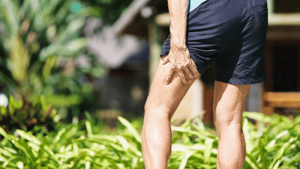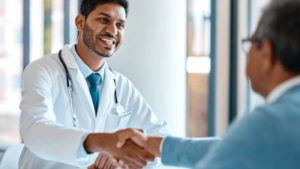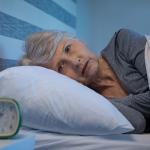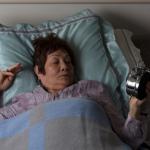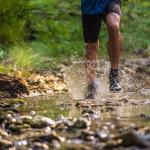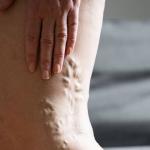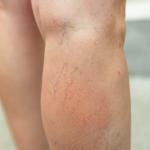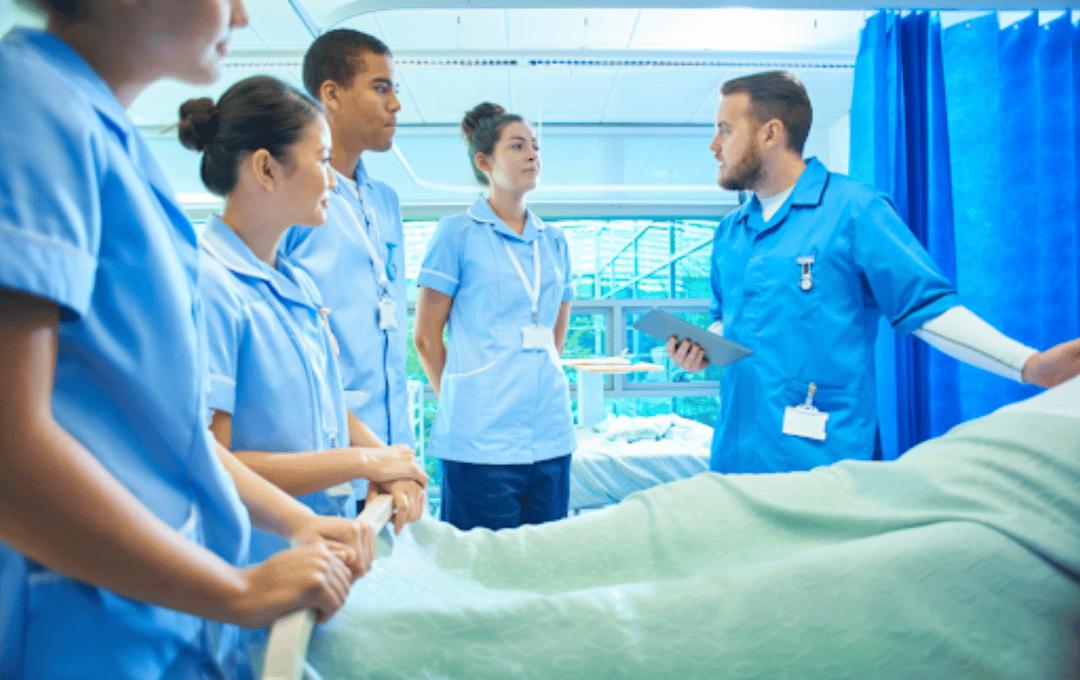
Standing for long periods — whether at concerts, social events, work shifts, or in long lines — can lead to more than just fatigue. For many, it results in leg pain, a common symptom of vein disease.
Vein disease, also known as venous insufficiency, occurs when the tiny valves in your veins malfunction. These valves normally help push blood back to your heart. When damaged, blood can pool in your legs, ankles, and feet instead of properly circulating.
As venous disease progresses, patients can experience a range of symptoms. These symptoms may include enlarged veins, swollen legs, itchy skin, and leg pain while standing.
USA Vein Clinics can diagnose and treat vein disease. If you’re experiencing leg pain while standing, call us or schedule an appointment online. Our vein specialists can identify what causes your leg pain and help you find relief.
Schedule Your Consultation Online
What Causes Leg Pain When Standing for Long Periods?
There are a few health conditions that can lead to pain after standing. Causes of leg pain after standing can include:
- Pressure on nerves: Standing can compress nerves in the legs, resulting in pain.
- Muscle fatigue: Standing for long periods can strain the muscles, sometimes causing soreness and fatigue.
- Poor circulation: When circulation slows, blood can pool in the legs, often causing swelling, aches, and pains after standing.
- Varicose and spider veins: Varicose and spider veins are veins that are twisted and damaged. They can cause pain and swelling after standing for a while.
Is Standing for Long Periods of Time Bad for Your Legs?
Standing for long periods with minimal movement can increase the risk of developing varicose and spider veins. Prolonged standing and being stationary increases pressure on the veins, leading to leg pain and swelling, especially in the lower legs and ankles.
Factors beyond standing can also increase your risk of vein disease:
- Genetics: A family history of varicose veins increases your risk.
- Aging: People over 50 are at higher risk
- Inactivity: Lack of exercise affects circulation and may lead to venous insufficiency.
- Body Mass Index (BMI): Excess weight places strain on veins.
- Gender: Women are more likely to develop vein disease.
- Pregnancy: Hormonal changes and increased blood volume can cause vein issues.
- Other health conditions: High blood pressure and diabetes can damage veins.
- Diet: Consuming a diet high in sodium, sugar, saturated fat, and alcohol can place you at risk for varicose veins.
- Smoking: Smoking can damage your vein walls, affecting circulation.
Standing for long periods can exacerbate vein disease symptoms. If you experience leg pain, swelling, or other symptoms, consider scheduling a vein health screening at USA Vein Clinics.
How to Relieve Leg Pain from Standing
Standing doesn’t have to lead to leg pain. By taking proactive steps, you can prevent soreness and swelling. USA Vein Clinics can provide guidance tailored to your vein condition through proper diagnosis and treatment.
Some steps you can take to relieve some leg pain include:
- Maintaining a healthy weight: Reduces strain on your veins.
- Wearing supportive footwear: Reduces the impact of standing.
- Using compression socks: Supports circulation and reduces swelling.
- Elevating your legs: Relieves pressure and promotes blood flow.
- Taking breaks from standing: Moving and stretching help improve circulation.
- Staying active: Walking around helps the leg muscles pump blood back to your heart.
When to Seek Help for Leg Pain from Standing
Leg pain can signal a more serious condition. Consider seeking help from a vein specialist if you notice the following:
- Changes in skin color: Vein disease can cause redness or discoloration in the legs.
- Persistent leg pain: Poor leg circulation can cause pain while standing, which improves with leg elevation.
- Aching sensation: The legs can feel achy or heavy when you have vein issues.
The specialists at USA Vein Clinics can diagnose and treat vein conditions, helping you achieve long-lasting relief through non-surgical vein treatments.
Medical Treatments for Leg Pain with USA Vein Clinics
Leg pain after standing may indicate vein disease or poor circulation. Vein treatment can alleviate symptoms such as leg pain while standing.
USA Vein Clinics offers non-surgical vein treatments that are proven to reduce painful symptoms. These FDA-approved procedures close off diseased veins and reroute blood flow to healthy veins. Patients can return to most normal activities immediately after treatment.
With treatments such as ClariVein®, radiofrequency ablation, VenaSeal™, and ultrasound-guided sclerotherapy, patients can find relief without the risk, costs, or time associated with surgery.
With over 160 nationwide clinic locations, we make vein treatment accessible and convenient. USA Vein Clinics will accept most insurance plans and can verify your insurance instantly when you schedule your appointment. If you have additional questions on vein disease or their treatments, call us at 888.768.3467.
*Last Reviewed 12/16/24

